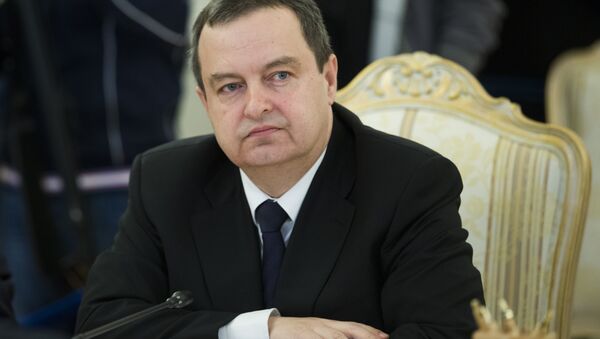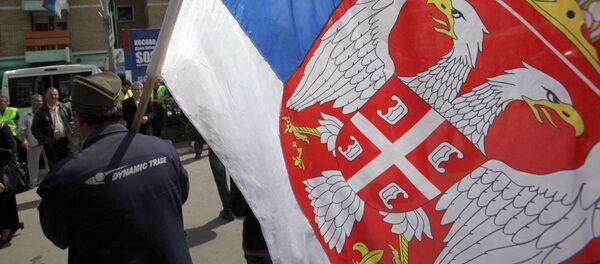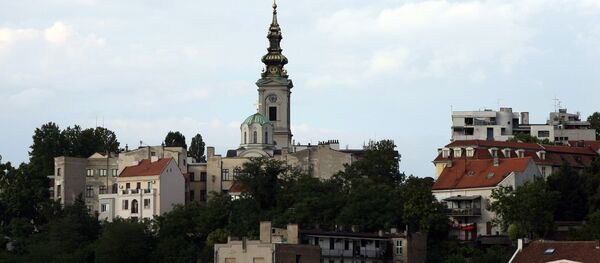During a visit to Belgrade, US Deputy Assistant Secretary for European and Eurasian Affairs Hoyt Brian Yee told Serbian leaders that their nation "cannot sit on two chairs at the same time." He pushed for Serbia, which was part of the non-aligned communist country Yugoslavia during the Cold War, to choose membership in either the US or Russian bloc. No prizes for guessing which bloc Yee would prefer.
But Serbian Foreign Minister Ivica Dacic, a member of the left-wing coalition government, insisted that Serbia would continue to maintain balanced ties with the US, Europe, Russia and China. "What we do not want is that someone pulls our own chair from under us… what is important is to see what is in our own best interest," Dacic told Reuters.
Serbia has reaped the benefits of playing both sides of the fence. Their main trade partners are Germany, Italy, Russia and China. Austria, Greece and the US pour billions in foreign investment into the Serbian economy, while Russia remains their top source for oil and natural gas. China has made Serbia a center of their "One Belt, One Road" economic initiative, as it's a crucial geographic link between Beijing and European markets.
The Serbian economy has reaped the benefits of allowing itself to be courted by all sides, with the World Bank reporting that their GDP climbed from $6.5 billion in 2000 to almost $38 billion in 2017- 477 percent growth in just 17 years.
Russia has also acted on Serbia's behalf in its attempts to prevent the international community from recognizing Kosovo. Once a nearly autonomous province of Serbia, the overwhelmingly ethnic Albanian Kosovo declared themselves independent in 2008. Russia has said it would use its veto power as a permanent member of the UN Security Council to prevent Kosovo from joining the UN; however, 110 of the 193 UN member states recognize Kosovo as an independent nation.
Dacic cited Russian support for Serbia and opposition to Kosovar independence as one of the benefits of "sitting on two chairs." He also likened the dispute to the ongoing independence crisis in Catalonia, a restless province of Spain.
"If Spain can fight for its concept of Catalonia then we Serbs can fight for our country," said Dacic, adding that he sought a "a win-win solution" and "an international conference" that would prevent future wars between Serbia and Kosovo "for a century." The Kosovo War of 1998 led to over 13,000 deaths and the creation of over 1 million refugees.
Dacic's proposed solution was near-total autonomy for Kosovo, with special zones created for Belgrade to govern Kosovo's estimated 120,000 Serbs. "That would be the only possible, realistic and lasting… solution of the problem."




